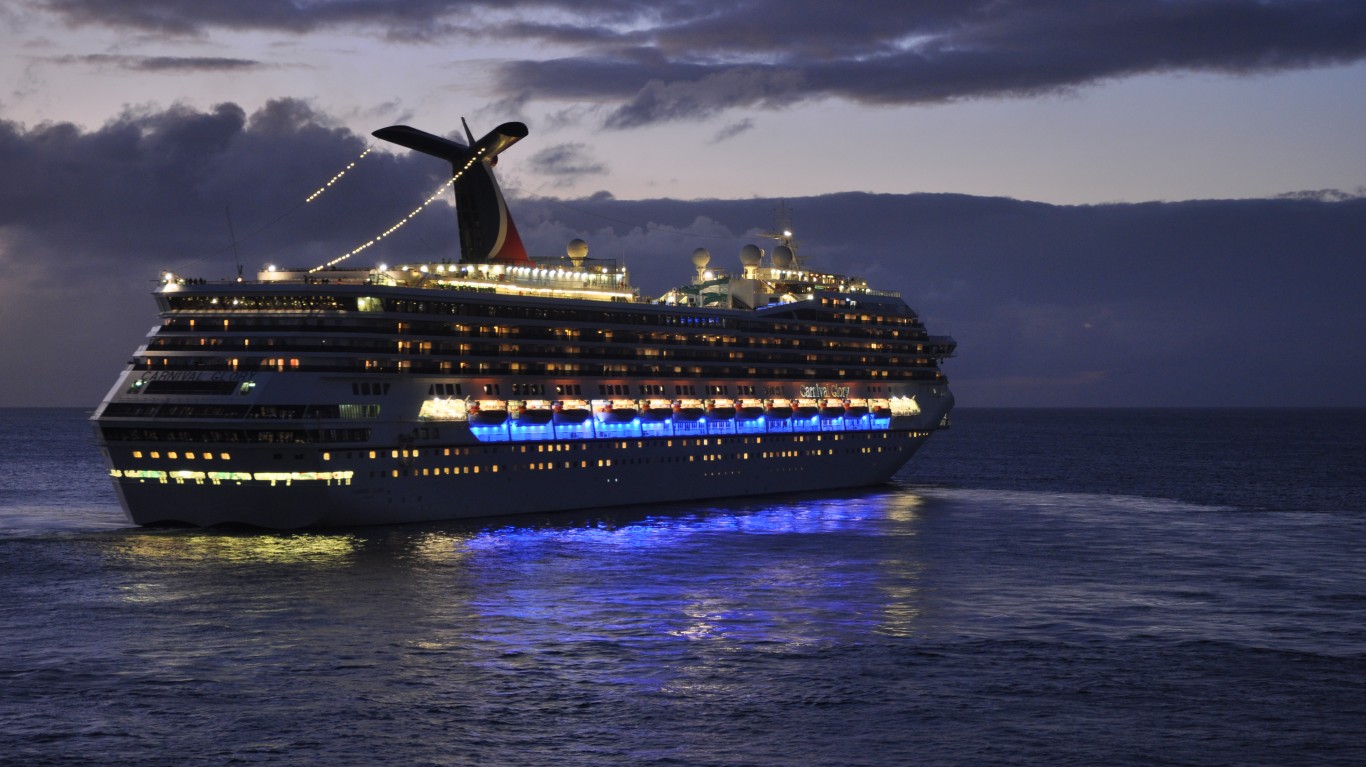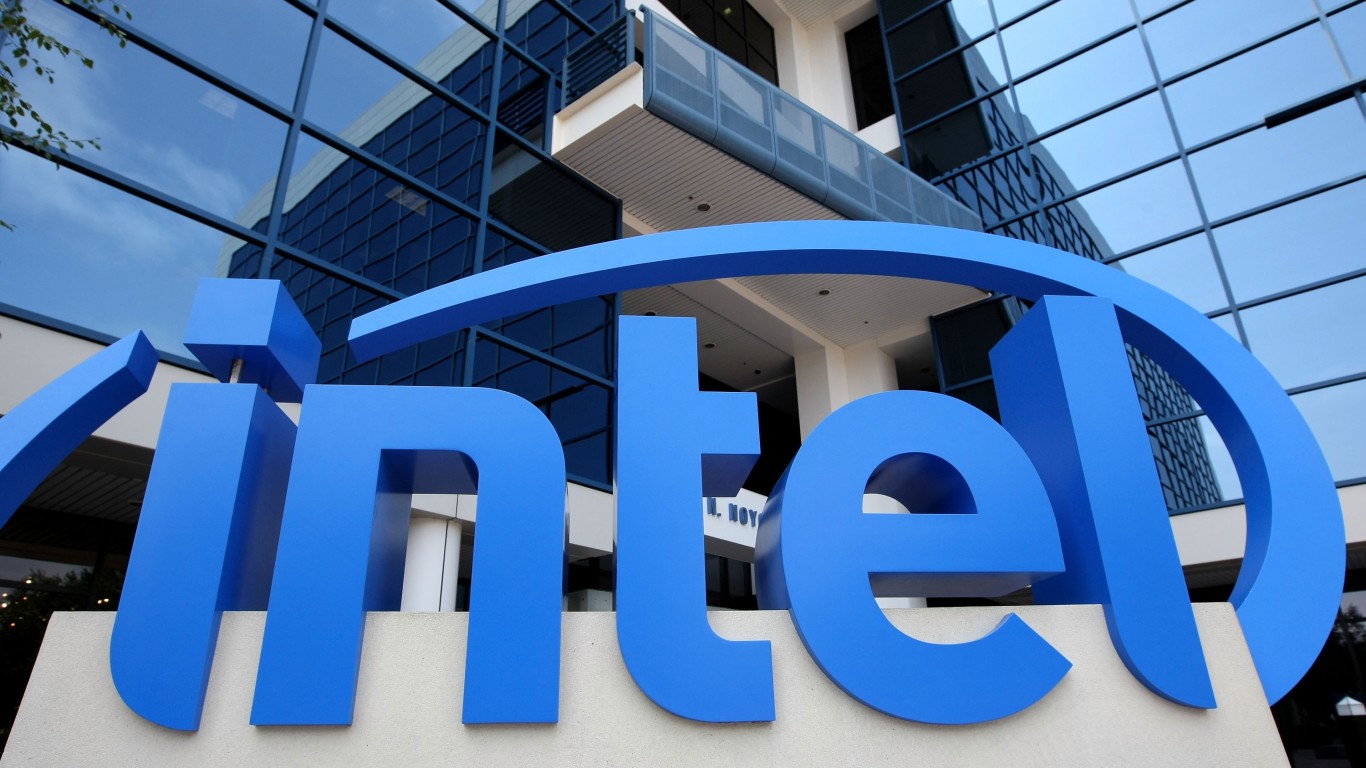
Being a short seller always has been a risky proposition, and the basic reason why is that the seller has unlimited loss potential. For investors who buy and are long stocks, or any other financial instrument, the worst-case scenario is that that position can go to zero from the purchase point. For the short seller, there is no downside limit for losses like that.
After a gigantic run off the March lows that has seen the Nasdaq post new all-time highs, and the S&P 500 very close to one, now is the time many hedge funds are probably pressing their short positions. With the seasonally weak time for the market around the corner and a host of reasons that could bring a sizable market pullback at any time, aggressive investors may want to consider small short-sale bets.
BTIG has posted a list of the most shorted S&P 500 stocks as measured by the percentage of the float that is sold short. The float represents the shares that are traded and in the open market, not the actual total share count.
American Airlines
This company has its major hub in Dallas where business continues to boom, though overseas routes are dramatically lower. American Airlines Group Inc. (NASDAQ: AAL) is the holding company for American Airlines.
Together with wholly owned and third-party regional carriers operating as American Eagle and US Airways Express, the airlines operate an average of nearly 6,700 flights per day to 350 destinations in over 50 countries from its hubs in Charlotte, Chicago, Dallas/Fort Worth, Los Angeles, Miami, New York, Philadelphia, Phoenix and Washington, D.C.
A stunning 29.5% of the shares in the float are sold short, and it’s easy to understand why. Air travel has plummeted during the pandemic, and American Airlines relies on a large amount of foreign travel, much of which is restricted.
The Wall Street consensus price target for American Airlines stock is $11.56, but Wednesday’s closing price was $13.54. The shares traded about $30 as recently as February.
Carnival
This should come as no surprise as the industry has ground to a halt with the COVID-19 pandemic. Carnival Corp. (NYSE: CCL) operates as a leisure travel and cruise company in North America, Europe, Australia and Asia. It offers cruises under the Carnival Cruise Line, Princess Cruises, Holland America Line and Seabourn brands in North America, as well as the Costa, AIDA, P&O Cruises (UK), Cunard and P&O Cruises (Australia) brands in Europe, Australia and Asia.
The company operates 99 cruise ships. It also owns Holland America Princess Alaska Tours, a tour company in Alaska and the Canadian Yukon, which owns and operates 11 hotels or lodges, approximately 300 motor coaches and 20 glass-domed rail cars. In addition, the company is involved in the leasing of cruise ships. It sells its cruises primarily through travel agents and tour operators.
The Centers for Disease Control and Prevention recently extended the no-sail order through September 30, and by then the summer vacation season will be over. Carnival only has enough cash to make it to mid-2021. Some 20.3% of the float is short, and that could rise if there is another upswing in COVID-19 cases and deaths.
The $15.13 consensus is near the most recent close of $15.19, after shares retreated almost 4% on Wednesday. Carnival stock traded at $50 in January.
Discovery
This somewhat off-the-radar media content play is a surprising top five short. Discovery Inc. (NASDAQ: DISCA) is one of the leading global providers of cable networks. Its portfolio of networks includes key networks such as Discovery Channel, Food Network, Eurosport (international network), HGTV, Animal Planet, The Learning Channel (TLC) and Travel Channel, as well as OWN (the Oprah Winfrey Network), DIY, Science Channel, Motor Trend Network and Investigation Discovery.
Discovery completed an $11.9 billion acquisition of Scripps in March of 2018, integrating the largely female-focused lifestyle channels such as HGTV, Travel Channel and Food Network with Discovery’s current channels. Earnings forecasts for the network have been lowered, and the large debt incurred from the Scripps purchase is perhaps the impetus for a short position that is 28.7% of the float.
The consensus price objective is $24.40. The last Discovery stock trade on Wednesday was reported at $21.82.
Iron Mountain
This one is somewhat of a surprise given the strength of the industry. Iron Mountain Inc. (NYSE: IRM) is the global leader in secure storage. It operates in 54 countries, generates more than $4.2 billion in revenue and has a durable business model. Recent acquisitions position the company for growth in data centers and emerging markets.
Iron Mountain stores and protects billions of valued assets, including critical business information, highly sensitive data and cultural and historical artifacts. Providing solutions that include information management, digital transformation, secure storage, secure destruction, as well as data centers, cloud services and art storage and logistics, Iron Mountain helps customers lower cost and risk, comply with regulations, recover from disaster and enable a more digital way of working.
While the company reported quarterly revenues that beat estimates, the numbers were down almost 10% year over year. Some on Wall Street expect negative estimate revisions and stabilizing volume trends over a longer period than previously expected. Some 19.4% of the float has been sold short.
This real estate investment trust pays a large 8.34% distribution, which short sellers are responsible for paying. The consensus price target is $28.88. Iron Mountain stock closed most recently at $29.82 a share.
Norwegian Cruise Line
This company has sold off big-time over the coronavirus concerns and has the same issues as rival Carnival. Norwegian Cruise Line Holdings Ltd. (NYSE: NCLH) is the world’s third-largest cruise company, and it owns and operates Norwegian Cruise Line, Oceania Cruises and Regent Seven Seas Cruises.
The company acquired Prestige Cruise Holdings, the parent company for Oceania and Regent Seven Seas Cruises, in 2014 to diversify into the premium and luxury segments of the market and expand its global footprint. Today, Norwegian has 25 ships across all three brands and offers itineraries to more than 510 destinations.
While 2021 should see some improvement, and the company probably has a large enough cash position to make it through next year, 18.7% of the float remains short. Again, a spike in COVID-19 cases and deaths could keep passengers from returning.
The $16.14 consensus price target is well above the most recent close at $15.23. Norwegian Cruise Line stock traded close to $60 per share in January.
Short selling is a difficult game, and while it would have been incredible to have been short a sizable position prior to the February-March 35% meltdown in less than 30 days, the 44% rally off the lows has taken away those gains, and perhaps more if hedge funds pressed their bets at the lows. Plus, remember, shorting any company with a dividend or distribution puts the onus on the short-sellers to pay that amount.
Take Charge of Your Retirement In Just A Few Minutes (Sponsor)
Retirement planning doesn’t have to feel overwhelming. The key is finding expert guidance—and SmartAsset’s simple quiz makes it easier than ever for you to connect with a vetted financial advisor.
Here’s how it works:
- Answer a Few Simple Questions. Tell us a bit about your goals and preferences—it only takes a few minutes!
- Get Matched with Vetted Advisors Our smart tool matches you with up to three pre-screened, vetted advisors who serve your area and are held to a fiduciary standard to act in your best interests. Click here to begin
- Choose Your Fit Review their profiles, schedule an introductory call (or meet in person), and select the advisor who feel is right for you.
Why wait? Start building the retirement you’ve always dreamed of. Click here to get started today!
Thank you for reading! Have some feedback for us?
Contact the 24/7 Wall St. editorial team.

 24/7 Wall St.
24/7 Wall St.



